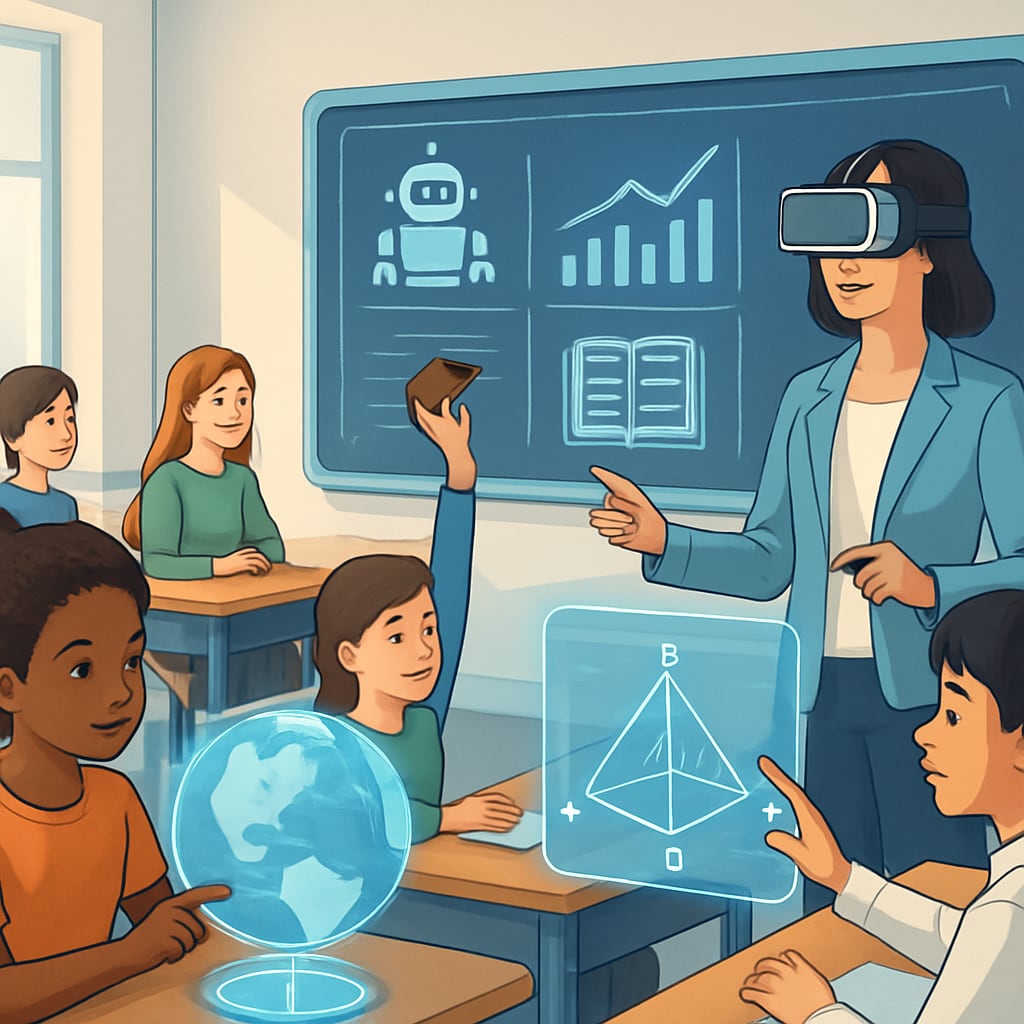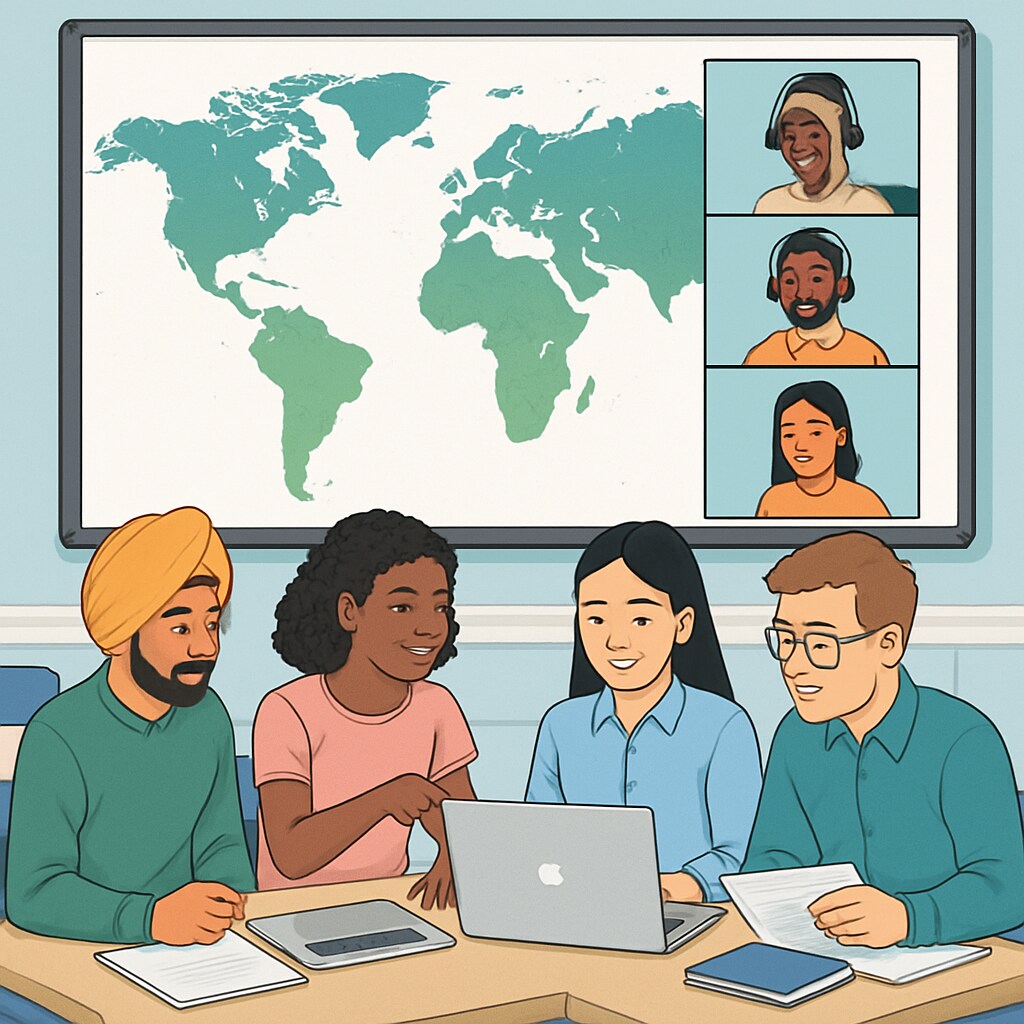The rapid evolution of artificial intelligence (AI) and the accelerating pace of globalization are redefining education systems worldwide. By 2030, the convergence of AI technologies and global interconnectedness will transform K12 education into a dynamic, personalized, and inclusive ecosystem. This article explores the profound impact of these forces on the future of K12 education, focusing on technological integration, innovative teaching models, and the potential for human-machine collaboration.
The Role of Artificial Intelligence in Shaping Education
Artificial intelligence has already begun to revolutionize how students learn and educators teach. By 2030, AI-driven tools are expected to become integral to the education experience, facilitating personalized learning, adaptive assessments, and real-time feedback. For example, AI-powered platforms like adaptive learning systems can tailor course content to individual student needs, helping them learn at their own pace.
In addition, AI will enable more efficient classroom management. Teachers will be supported by AI assistants that can automate administrative tasks such as grading and attendance tracking, allowing them to focus on delivering high-quality instruction. Moreover, AI can bridge language barriers, enabling students from different linguistic backgrounds to access the same content through real-time translation technologies.

Globalization and Its Impact on K12 Education
Globalization is fostering a more connected and interdependent world, and education systems are no exception. By 2030, K12 education will increasingly emphasize cross-cultural competencies, global citizenship, and digital collaboration. Students will have access to a wealth of international resources and virtual exchange programs, broadening their horizons and preparing them for a global workforce.
For example, online platforms can connect classrooms from different countries, enabling students to collaborate on projects and share perspectives. This creates opportunities for cultural exchange and mutual understanding. Additionally, globalized curricula will emphasize skills such as critical thinking, problem-solving, and adaptability—key attributes for thriving in a rapidly changing world.

Human-Machine Collaboration: The Future of Learning
The education landscape of 2030 will not be defined by AI alone but by the synergy between humans and machines. Teachers will continue to play a crucial role in fostering creativity, empathy, and ethical reasoning—qualities that machines cannot replicate. However, they will do so in collaboration with AI tools that augment their capabilities.
For instance, immersive technologies such as virtual and augmented reality will create engaging learning experiences, while AI tutors will provide individualized support to students. Additionally, data-driven insights generated by AI will help educators identify learning gaps and design targeted interventions, ensuring no student is left behind.
Nevertheless, challenges remain. Ensuring equitable access to AI-driven education tools, addressing ethical concerns related to data privacy, and providing professional development for teachers to effectively use these technologies will be critical to realizing the full potential of AI in education.
Looking Ahead: A Holistic Vision for 2030 Education
By 2030, the integration of artificial intelligence and the effects of globalization will result in an education system that is more inclusive, personalized, and globally connected. However, this transformation will require a collaborative effort between governments, educators, technology developers, and communities.
As we look to the future, it is essential to strike a balance between embracing technological advancements and preserving the human elements of education. Only by fostering human-machine collaboration and promoting global understanding can we create an education system that equips students with the skills and values needed to thrive in a complex, interconnected world.
Key Takeaways:
- AI will personalize learning experiences and support teachers in administrative tasks.
- Globalization will enhance cross-cultural competencies and digital collaboration.
- Human-machine collaboration will create a balanced education ecosystem.
- Challenges such as equitable access and data privacy must be addressed.
By embracing these trends, we can ensure that the future of K12 education is not only innovative but also equitable and inclusive for all learners.
Readability guidance: Short paragraphs, use of lists, and transitional phrases ensure clarity and flow. Active voice and concise sentences enhance engagement, while key terms are introduced with simple explanations.


